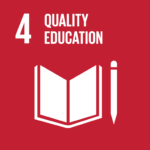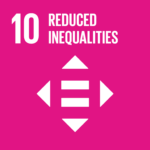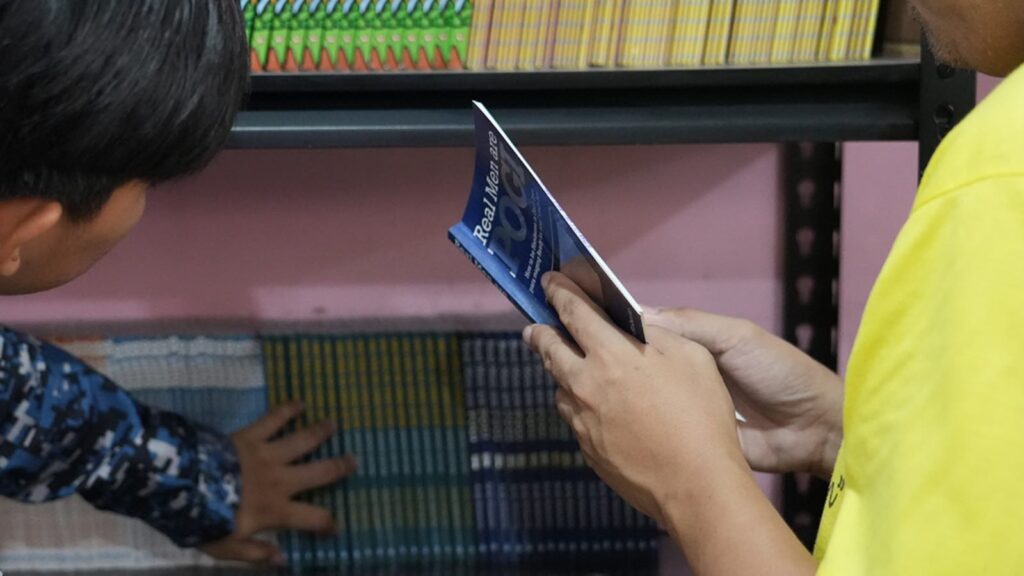“Read Your Way Out” program offers hope for a more humane and effective prison system in the Philippines, where education and personal growth are at the heart of reform efforts.
In an innovative move to tackle prison overcrowding, the Philippines has launched the “Read Your Way Out” initiative, allowing inmates to reduce their sentences by spending time reading. This literacy-based program, supported by the United Nations Office on Drugs and Crime (UNODC), has already begun to alleviate overcrowding in the nation’s jails, providing inmates with a pathway to early release and a chance for personal growth.
RELEVANT SUSTAINABLE GOALS


A Novel Initiative: “Read Your Way Out”
In an innovative move to tackle prison overcrowding, the Philippines has launched the “Read Your Way Out” initiative, allowing inmates to reduce their sentences by spending time reading. This literacy-based program, supported by the United Nations Office on Drugs and Crime (UNODC), has already begun to alleviate overcrowding in the nation’s jails, providing inmates with a pathway to early release and a chance for personal growth.
At the Iligan City Jail, one participant, Dave*, spends up to eight hours a day engrossed in books. For every 60 hours spent reading, inmates can reduce their sentences by 15 days, offering a much-needed reprieve from the overcrowded facilities. “Reading is a distraction and gives me a sense of freedom I cannot get in jail,” said Dave, who is serving a six-month sentence.
The Challenge of Overcrowding
Overcrowding is a chronic issue in the Philippines’ detention centers. Iligan City Jail, for instance, holds 550 prisoners in a facility designed for just 270. The new reading initiative aims to ease this pressure, not only by reducing inmate numbers but also by improving literacy and educational levels among prisoners, according to UNODC’s Rafael Baretto Souza.
Jail Officer Reiaine Sulit remarked on the immediate positive impact of the program: “The prisoners were so happy when we received the books. I think reading brings a sense of calm to the jail.” The initiative has introduced a range of literature in both English and Tagalog, catering to the diverse needs of the inmates.
A Broader Strategy: Shifting Approaches to Justice
This reading program is just one part of the Philippines’ broader efforts to reform its justice system and ease overcrowding in jails. Under a new, more humane approach to incarceration, the government has prioritized policies such as bail reduction, the release of elderly prisoners, and alternative sentencing for minor offenses, especially those related to drug crimes. Around 70 percent of inmates in the country are incarcerated for drug-related offenses, a result of the previous administration’s harsh “war on drugs.”
The shift in focus from punitive measures to rehabilitation is a key component of the country’s new strategy, which treats drug addiction as a health issue rather than solely a criminal one. “It’s a complex problem,” said Daniele Marchesi, UNODC’s country chief in the Philippines. “This requires a whole-of-sector approach, involving the judiciary, law enforcement, health services, and human rights organizations.”
While programs offering sentence reductions for reading are common in Latin America and Europe, the “Read Your Way Out” initiative is the first of its kind in Asia. Its success has drawn attention from neighboring countries, which are now expressing interest in adopting similar programs.
In addition to easing overcrowding, the initiative supports the reintegration of inmates into society. By engaging in productive activities such as reading, inmates improve their prospects for a successful return to the community after serving their sentences.
With over 8,000 prisoners released in the past year due to reforms in the justice system, the Philippines is making strides in its effort to address the deep-seated issue of overcrowding. Justice Filomena Singh of the Supreme Court emphasized the importance of a holistic approach to the issue, ensuring that the legal system supports rehabilitation and reintegration, rather than merely punitive measures.
Lead image courtesy of UNODC / Laura Gil (A prison official and a prisoner browsing the shelves.)





